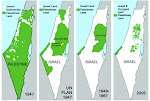Why Israeli Spin-doctors don't win Propaganda Battles in Foreign Media

Gideon Lichfield, a veteran Economist scribe who has been based in Latin America, Moscow and Israel, explains Hasbara for the diaspora versus Pallywood in a guest post below. (His article ran as an op-ed in today's Haaretz). Justifying apparent atrocities is not an enviable task. The IDF's dispassionate explanations, backed by uploads of YouTube "weapon porn" videos shown striking targets, penetrating, and exploding, draw fire in the world's media. Lichfield writes about the ins and outs of military p.r.:
Gideon Lichfield, until recently The Economist's Jerusalem correspondent, will be moving to the weekly's New York bureau.
It had to happen at some point. The army attacks a civilian building identified as a source of fire; dozens of civilians are killed, and what little sympathy Israel enjoyed in whatever war it's currently fighting evaporates. It happened in Qana during the Second Lebanon War, and yesterday a school in the Jabalya refugee camp became a global symbol of indiscriminate Israeli aggression.
When these things happen, Israel is quick to respond on the public-relations front. It didn't take long before we foreign correspondents started getting text messages from the Israel Defense Forces on our cell phones. One said that the school was targeted because it was "a source of mortar fire." Another informed us that video footage was available of rockets being fired from another UNRWA school several months earlier. A third told us the names of the Hamas operatives who were killed along with the children and mothers cowering nearby.
I frequently get asked by Israelis, "why aren't we winning the PR war? Why don't people understand that this is what we have to do?" Many are convinced that there is something wrong with Israeli hasbara (public advocacy), that the spokespeople aren't effective enough, or that the Palestinians have a huge and demonically efficient propaganda machine.
When I hear this I have to explain that Israeli hasbara is so sophisticated that there is still no adequate word for it in English; that some of Israel's spokespeople could talk the hind legs off a donkey and then persuade the donkey to dance the hora, and that the Palestinians barely even know what a spokesman is, let alone be able to provide one who is available when he needs to be and knows anything about what is actually going on. So why isn't Israel winning the PR war?
Partly, of course, it's because the numbers are against it. Six hundred Palestinians dead versus nine Israelis, as of today's figures: There's just no way to make that proportion look pretty. Retired generals can drone on all they like about what "proportionality" really means in the laws of war, ambassadors can helpfully point out that many more Germans were killed than British in the Second World War, but these are theoretical notions; on television, what looks bad looks bad. (Nor do I really buy the argument that if Israel's casualties were more visibly bloody - if, say, the media showed the gory pictures of the few people who have been hit by Qassams instead of holding them back to keep the home front from getting agitated - then you could counter the stream of barbaric images from Gaza. There's just no competition.)
But the deeper reason is this: Israeli hasbara is perpetually trying to answer the wrong question: "Why is this justified?" Of course, it's natural for either side in a conflict to try to explain why it, and not the other side, has the moral high ground. But, especially in a conflict where both sides have been claiming the moral high ground for decades, nobody in the outside world is all that interested. From a foreign correspondent's point of view, it makes for boring journalism: "The Israelis said this, but the Palestinians said that." And since we're all studiously trying to be "neutral," we'll always balance your view against theirs; so the fact that you make more of an effort to explain than they do doesn't really matter.
The question the foreign media really wants answered is invariably not "who's in the right?" but "how will this round of fighting improve the overall situation?" And on that point, Israel never has a convincing argument. Given the country's long history of engaging in wars that kill many more of its enemies than its own citizens but only buy a few months or years of calm, it's a tough call to explain how this latest escapade will change the strategic balance, bring peace and prevent the need for another such bloodbath further down the line. Often that's because there is in fact no good reason: Wars are fought for short-term gains. And it doesn't help that with the constant competition for power within Israeli coalitions, it's easy to interpret this war, like many others, as a political imperative, not a strategic one.
And so when the question the world is asking is not "who's right?" but "what works?" the consistent impression Israel leaves is that it kills people because, at best, it simply doesn't have any better ideas, and at worst, because some Israeli leader is trying to get the upper hand on one of his or her rivals. And no amount of hasbara can make that look good.
 Izzy Bee's afterthought: note that cultural references can go terribly wrong and produce utterly the wrong message. Hence this dubious item, which was posted on the Facebook page of a humanitarian NGO in Ramallah by earnest American entrepeneurs.
Izzy Bee's afterthought: note that cultural references can go terribly wrong and produce utterly the wrong message. Hence this dubious item, which was posted on the Facebook page of a humanitarian NGO in Ramallah by earnest American entrepeneurs.Pro-palestinians were asked to buy these t-shirts for their pets, ostensibly as a means of showing support for the people of Gaza. A real dog of an idea, no? This pooch looks like he's in a sniper's cross-hairs. These guys should be hounded out of business.





















No comments:
Post a Comment